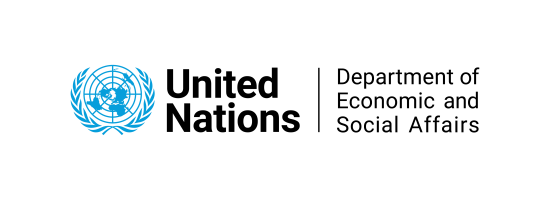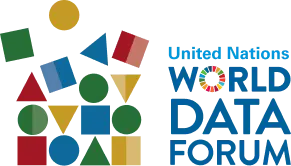
UN Data Commons - Scaling access to open and accessible UN data
Private sector
UN DESA
Global
Data for policymaking and SDG monitoring is currently siloed across numerous UN and government sources. This lack of interoperability hampers policy leaders' ability to understand trends and make informed decisions. To address this problem, UN DESA is modernizing UN Data, creating a centralized hub for official data and statistics using Google’s Data Commons and its out-of-the-box Natural Language search. This initiative aligns with the UN Secretary-General’s Data Strategy, highlighting the UN's commitment to data-driven solutions. The UN Data Platform leverages advanced data, digital, and AI capabilities for SDG implementation, promoting a collaborative data culture and supporting the UN 2.0 vision.
The UN Data Platform can be accessed here: https://unstats.un.org/unsdtest/UNSDWebsite/undatacommons/
Every moment, all around the world, governments, organizations, and many others are generating data on topics as widely varied as temperature, trade or rates of disease. It’s data that could be extraordinarily useful to understanding and addressing major societal challenges like climate change, hunger or epidemics. Fortunately, much of this data is publicly available, with more to come. Unfortunately, being publicly available is not the same as being easy to access and use. This is the gap that Data Commons, an initiative from Google, is working to bridge. Data Commons’ long-term vision is to do for publicly available data what Google Search does for the Internet – organize it and make it accessible and useful.
UNDESA and Google are working together to modernize the UN Data Platform, powered by Google’s Data Commons. This centralized hub will streamline access to official UN data and statistics, aiming to speed up data-driven policymaking and SDG monitoring. Google provides funding and technical support, while UNDESA engages UN agencies, Member States, and stakeholders to ensure data comprehensiveness and accuracy.
Key Activities:
- Data Integration: Consolidating data from various UN Systems into a single, interoperable platform.
- Platform Development: Utilizing Google’s open source Data Commons technology to build and maintain the UN Data Platform including the website and associated AI powered Natural Language search.
- Capacity Building: Providing training and support to UN and governments to effectively use and contribute to the platform.
- Ongoing Improvement: Continuously updating the platform with new data and features based on user feedback and technological advancements.
Strategies:
- 1. Interoperability: Ensuring seamless data integration and compatibility across various sources and platforms.
- 2. User-Centric Design: Focusing on the needs of policy leaders and decision-makers to make data easily accessible and actionable.
- 3. Transparency and Openness: Promoting a culture of collaboration and data sharing within the UN system and beyond.
- 4. Advanced Technologies: Leveraging cutting-edge digital and AI capabilities to enhance data analysis and visualization.
Intended Outcomes:
- 1. Enhanced Decision-Making: Providing policymakers with comprehensive, up-to-date data to inform their decisions and track progress toward the SDGs.
- 2. Improved Data Accessibility: Centralizing data in an easy-to-navigate platform, reducing fragmentation and silos
- 3. Stronger Collaboration: Fostering a more collaborative and open data culture among UN agencies, member states, and other stakeholders
We are committed to the continuous growth and user-centric improvement of the UN Data platform, ensuring it evolves to meet the diverse needs of our user base. As we expand the number of participating UN agencies and datasets integrated into the platform, we consistently gather feedback from end users through multiple channels, including prominent feedback links on the platform, targeted surveys, and one-on-one user interviews. In addition, we consistently gather feedback from statistical, scientific, and policy experts from participating partner agencies and organizations. This ongoing engagement with users and partners will allow us to continue gaining invaluable insights into their experiences and perspectives, and enable us to swiftly and continuously address bugs and introduce new features.


